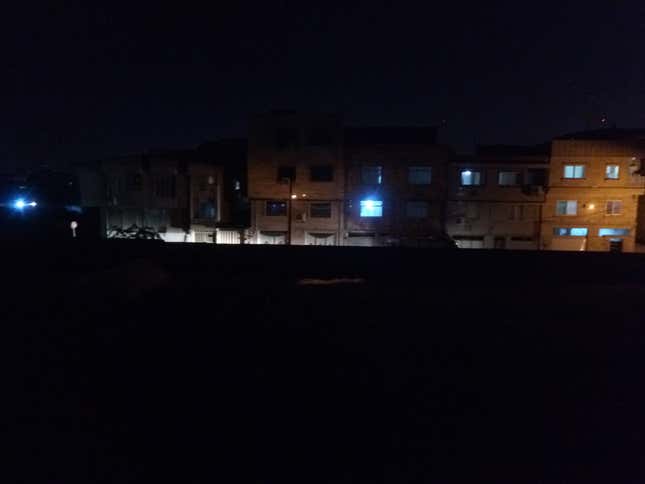For Mehdi Rajabian, an Iranian dissident and musician, spending long days and nights in isolation is nothing new.
Between multiple stretches in prison for “spreading propaganda against the system” and “insulting the sacred,” and now living under a court-ordered ban on making music—a violation of which could send the setar player immediately back to jail—Rajabian says sheltering in place as Covid-19 continues to ravage Iran “doesn’t make much difference to me.”
Iran has been hit particularly hard by the novel coronavirus, with more than 103,000 known cases and nearly 6,500 deaths.
“I have been in quarantine for many years,” Rajabian told Quartz. “When you are in solitary confinement for three months with your eyes closed, when you are kept in a cell during a hunger strike, it is no different than quarantine. Even if one day everyone is released from quarantine, I am still subject to a permanent quarantine ban. I haven’t been able to leave Iran for years.”
Right now, Rajabian is at his home in Sari, a city of 300,000 about 100 miles north of Tehran. He passes the time playing his setar, a traditional Iranian instrument in the lute family, studying art, and watching foreign films on his laptop.
“The Iranian art community is even afraid to talk to me, let alone cooperate with me,” Rajabian said. “But I’m currently writing a new album at home. I don’t even hope to [release] it, but writing gives me peace of mind.”
Before a musician can operate legally in the Islamic Republic, they need an “activity license” from the Ministry of Culture and Islamic Guidance. And although Rajabian reportedly sought one, he was never approved. He continued to run his independent production company, Barg Music, with his brother anyway. They maintained a publicly accessible website, and promoted female solo artists whose recordings and performances are typically forbidden by Iranian authorities.
In October 2013, four years after setting up Barg Music, the Islamic Revolutionary Guards arrested Rajabian. He was in the process of recording an album titled The History of Iran Narrated by Setar, which called out the “absurdity” of the war between Iran and Iraq during the 1980s. A couple of months later, the country’s Morality Police arrested a popular Iranian rapper named Amir Tataloo.
Although Rajabian was not formally charged, he says he was tortured for 18 days at an unknown location before being taken to Tehran’s notorious Evin Prison. There, Rajabian spent almost three months in solitary confinement, blindfolded.
Eventually released on bail, Rajabian continued making music. He was arrested again in 2015. After a five-minute trial, Rajabian was sentenced to six years in prison and fined 200 million rials, about $6,650.

Rajabian went on two extended hunger strikes during his time at Evin, the second lasting 40 days. When he wasn’t in solitary, Rajabian says he shared a cell with a Somali pirate “boss” who became a close friend.
In 2017, Rajabian was once again set free. Under the terms of Rajabian’s release, which is classified as temporary, he can be rearrested at the whim of the regime. He now lives with his parents in Sari.
“I can go out,” said Rajabian, explaining that his activities are monitored. “But I’m not going because I can’t do anything outside. I feel like everything is under [government] control…The pressure is always on my head.”

Last year, Sony Music Turkey released Rajabian’s most recent album, Middle Eastern. He says he wrote many of the songs in prison.
It may be some time before Rajabian puts out his next, however. While quarantined, Rajabian recorded a new solo setar album that he says he trashed less than 24 hours before its planned release.
“I destroyed my artwork today in protest,” Rajabian said. “Today I burned the hard drive and all the materials. Because of the lack of media [coverage of his plight], because of the ban, government pressure, imprisonment, housekeeping, despair…Today I destroyed and burned my album.”
